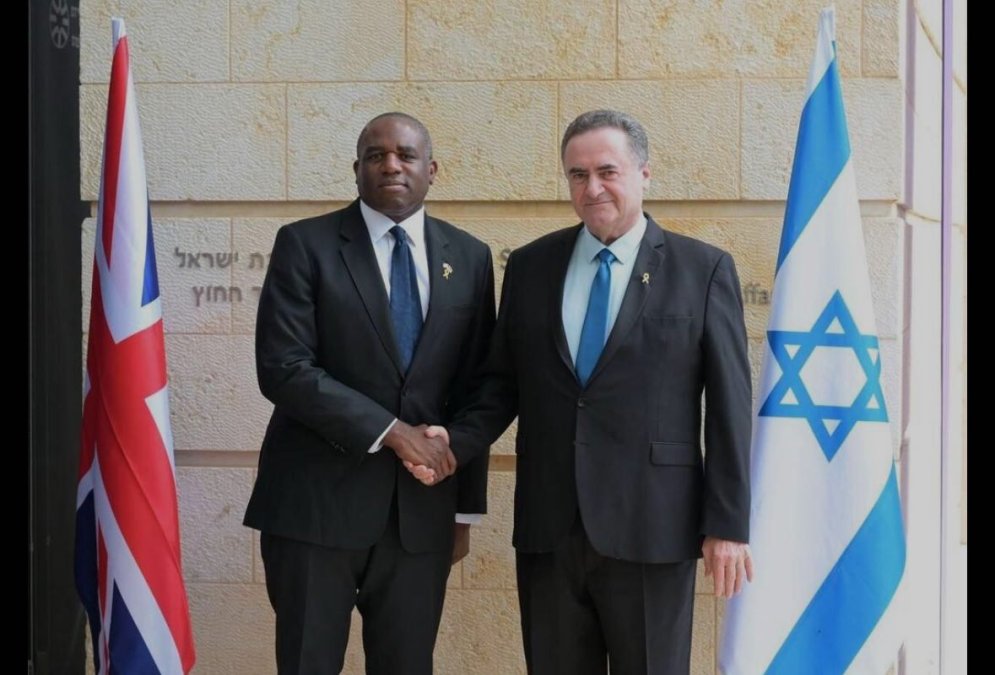Armed Silence of London: Britain’s Footprint in the Gaza War Under Scrutiny
Armed Silence of London: Britain’s Footprint in the Gaza War Under Scrutiny
According to IranGate News Agency, following the intensification of Israeli military operations in the Gaza Strip and increased pressure from global public opinion, the new British government led by the Labour Party has adopted a clearer and more critical stance towards Israel’s actions.
Meanwhile, Britain’s role in supplying military and intelligence technologies used by the Israeli army, especially regarding F-35 fighters and surveillance drones, remains a focus for observers and human rights organizations.
Although London is not considered one of the main arms exporters to Israel, its position in the global supply chain for military components, especially in joint projects with the United States, has raised serious questions about the extent of Britain’s responsibility in the continuation of the conflicts.
This report thoroughly examines the various aspects of Britain’s arms, intelligence, and training collaborations with Israel and London’s foreign policy developments regarding the Gaza war.
1. Britain’s New Stance on the Attack on Gaza
After the establishment of the new Labour government, Britain has adopted a harsher and more critical tone regarding Israel’s war in the Gaza Strip. David Lammy, the British Foreign Secretary, has severely criticized Israel’s military actions in civilian areas and warned that if the method of the Israeli army’s operations does not change, London might consider more practical measures in the coming weeks. He also expressed his dissatisfaction with the global community’s inability to stop the conflicts and showed deep disgust at the attacks on aid centers that resulted in Palestinian casualties. These statements indicate a significant change compared to the previous government’s policies, which mostly spoke with caution and implicit support for Israel.
2. The Extent of Arms Sales and Transfers from Britain to Israel
Although Britain is not among the primary arms exporters to Israel, it remains one of the key suppliers of certain crucial components. Reports indicate that since 2015, arms export licenses worth over £500 million have been issued. The main focus of criticism is on Britain’s role in producing components for F-35 fighters, jets that play a significant role in Israel’s air operations in Gaza. These components, including targeting systems, rear fuselages, ejection seats, and other parts, are mostly manufactured in Britain and exported to the US, where they are used in the final assembly of fighters for transfer to Israel. The British government acknowledges that due to its participation in the global F-35 project, it cannot directly prevent the transfer of these components to Israel.
3. Britain’s Role in Intelligence and Surveillance Operations Related to Gaza
Since late 2023, British Air Force reconnaissance planes have conducted hundreds of missions over Gaza. These flights, carried out from an airbase in Cyprus, according to the British government, lacked any intelligence cooperation with Israel. The declared aim of these operations was to locate Israeli hostages remaining from the Hamas attacks on October 7. British military officials have emphasized that the information obtained from these flights has not been shared with the Israeli army. However, reports of Israeli refueling planes in British skies have emerged, suggesting the potential joint use of some military bases. The British Ministry of Defense has stated that granting limited and occasional access to some allied aircraft, including those from Israel, is a standard procedure.
4. Training of Israeli Army Forces in Britain
According to an official announcement by the British Ministry of Defense, from 2020 to the present, fewer than 10 Israeli military personnel have participated annually in non-combat military courses. These courses, focusing on topics such as military management, cyber technologies, and operational planning, are considered part of Britain’s customary collaborations with the armed forces of partner countries. However, government officials have refrained from releasing further details, including the exact number and nature of the classes, citing the need to protect the privacy of these military personnel. The government also emphasized that these trainings are designed and implemented based on the principles of international humanitarian law.
5. Britain’s Stance on Sanctions or Direct Pressure on Israel
After the Labour Party came to power, the new government has taken some limited actions to apply diplomatic pressure on Israel, including suspending negotiations related to expanding the free trade agreement with Israel and joining 27 other countries in condemning the killing of civilians by Israeli forces. However, no direct sanctions have been imposed on Israel for its operations in Gaza. The government has so far only sanctioned two hardline Israeli ministers for inciting violence in the West Bank. David Lammy described the Israeli army’s conduct in Gaza as a violation of the moral values of the British people but still emphasized that Israel has the right to defend itself, and a comprehensive arms embargo is not on the agenda.
Final Summary
Britain’s approach to the Israel-Gaza war has entered a new phase, showing signs of distancing from traditional supportive positions. Although Britain is not in the top position in terms of arms transfer volume, its indirect role in the global arms production chain and participation in key technologies like the F-35 calls its real impact into question. Meanwhile, the Labour government is trying to balance supporting human rights, international commitments, and maintaining relations with the US and Israel, a process that might undergo further changes in the coming months with the intensification of the war or increased public pressure.

